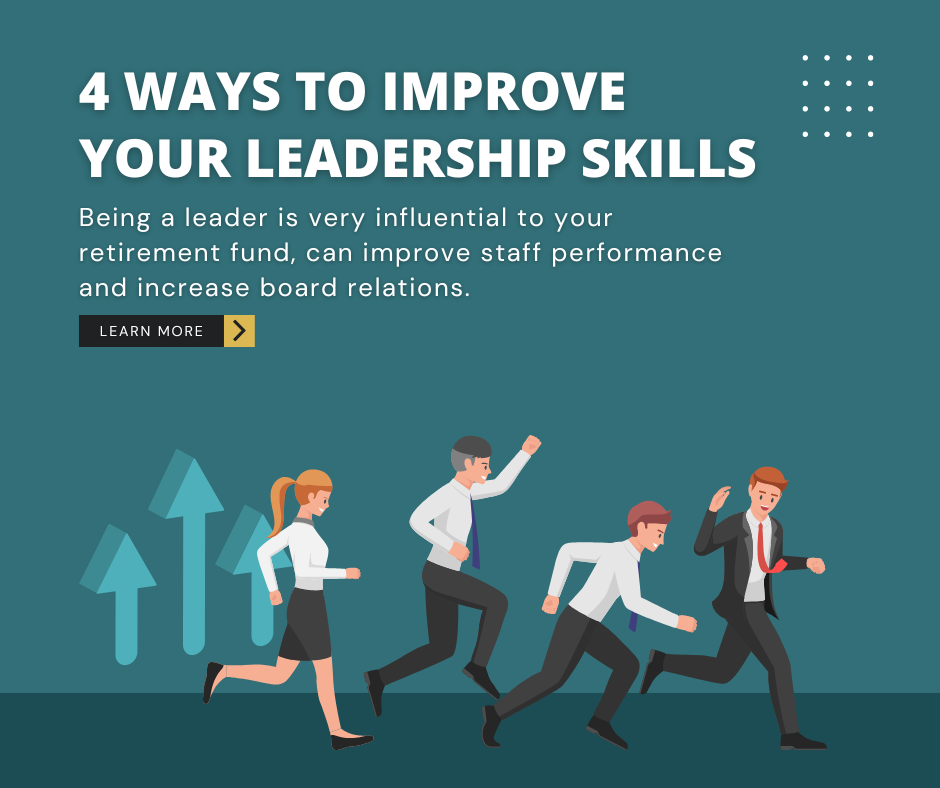Administrators and trustees of public retirement systems must act in the best interests of their beneficiaries, exercise good faith in their duties, seek professional services, and supervise those to whom functions are assigned. To put it simply - you're a leader.
Leadership skills don't come naturally. They are skills to be acquired through education and training; as the old saying goes, "practice makes perfect."
A 2013 study published in Asia Pacific Journal of Marketing & Management Review set out to see if leaders are born or made. About 50% to 75% of organizations are led by people who lack leadership skills, according to the paper.
To determine if leaders are "born or made," the researchers sampled 160 respondents with a questionnaire and analyzed the data. According to the study's authors, "Anybody can become a leader, but everybody cannot become a leader." Education, training, and practice are the keys to developing leadership skills.
Although the research paper offers its own "leadership secrets," we've found some additional advice from experts to help you boost your leadership skills.
Be an Enabler
A leadership development speaker and CEO of Leadergrow Inc, a company dedicated to the development of leaders, Robert Whipple believes that great leaders empower their teams to achieve their goals. According to him, poor leaders get in the way by invoking bureaucratic hurdles that waste time or make extra work. Read More
Check Your Ego
Think you're the most intelligent person in the room? Maybe your ego's getting in the way. LaRae Quy, a former FBI undercover and counterintelligence agent and author of Secrets of a Strong Mind: How to Build Inner Strength to Overcome Life's Obstacles, says, "Egotists believe themselves to be superior to others in skill and intelligence. As a result, some prefer to bully and insult others, while others are simply too self-centered to care about those around them." Read More
Reframe Feedback
According to executive coach Ed Batista, receiving negative feedback can hurt, especially if you perceive it as unfair or threatening. He recommends reframing it as data you can work with and use to identify changes you can make. "Invite your feedback providers to partner with you in this process, by offering help, support and understanding, and possibly by taking some responsibility for their contributions to the issue," Batista writes. Read More
Build Effective Teams
There might be times that you need to appoint a committee or ask employees to work on a project. There are methods to building effective teams, writes leadership coach Suzie McAlpine on her blog, The Art of Leadership. Create a powerful team by building trust, getting to know your reports, being clear on what success looks like, and letting them figure out problems on their own when possible. "When your team members face a problem, it's an opportunity to help them learn," McAlpine writes. "While your natural instinct as a leader might be to jump in an offer solutions, sometimes it pays to take a step back and let them figure it out themselves." Read More
About the Author: Allen Jones is director of communications and event marketing for TEXPERS.

